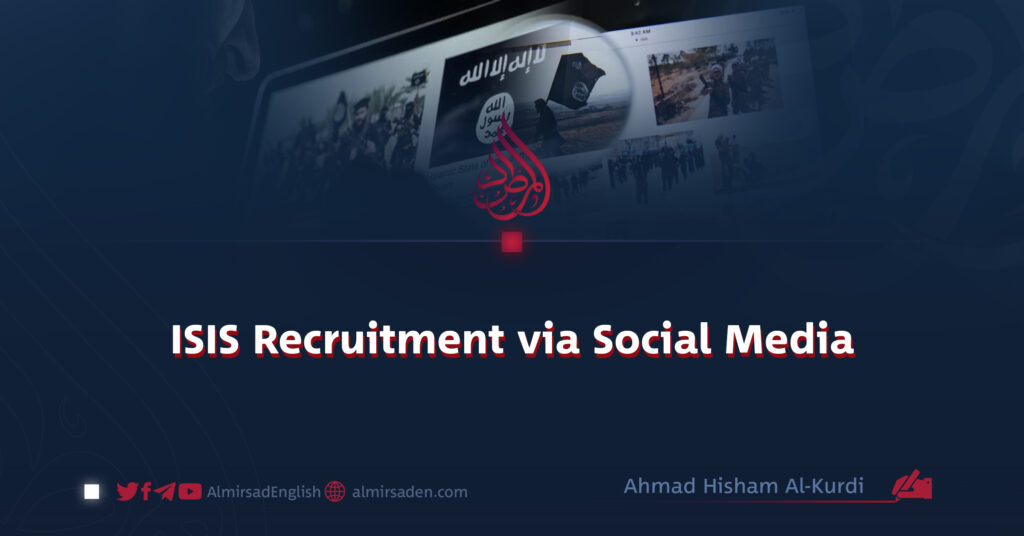Author: Ahmad Hisham Al-Kurdi
ISIS utilizes social media in a skilled and sophisticated manner to recruit individuals into its ranks, specifically targeting youth and those facing social or economic challenges, or seeking recognition and acceptance.
They employ psychological, cultural, and emotional tactics to present an appealing “solution to a life full of challenges,” often ensnaring individuals who are initially unaware of the realities.
This article highlights the key strategies ISIS employs for recruitment through social media include:
1. Disseminating Emotional Content:
ISIS shares high-quality videos, images, and stories to appeal to young people, sending the message that they will have a special role within their organization. They share content designed to evoke strong emotions, depicting the suffering of Muslims under oppression and in wars. This content is designed to resonate deeply, particularly with emotionally vulnerable individuals.
2. Targeting Youths’ Emotional Needs:
ISIS exploits young people’s desire to be part of a grand and “sacred” mission. They instill the belief that establishing a caliphate and “protecting Islam” is the responsibility of the youth, convincing them that joining ISIS will help achieve this great purpose.
3. False Promises and Deceptive Goals:
ISIS often promises individuals a better life, financial aid, and even familial support. They paint an image of life under the caliphate as peaceful and just, free from problems and injustices, luring individuals into their ranks.
4. Extensive Propaganda and Personal Connections:
ISIS uses platforms like Twitter, Facebook, Telegram, and others for communication. They form dedicated groups and send personal messages to directly reach young people, persuading them and using psychological pressure to recruit them.
5. Training and Educational Content:
ISIS publishes books, lectures, and videos as educational content, portraying their extremist ideology as religiously legitimate. They manipulate misinterpreted Islamic concepts to convince people that joining their group is a religious obligation, while in reality, it serves their malicious goals.
6. Multilingual Propaganda:
ISIS disseminates propaganda in various languages, including Arabic, English, French, and others, to connect with individuals from diverse countries and cultures.
7. Misuse of Quran and Hadith:
ISIS selectively uses verses from the Quran and Hadith in their social media propaganda, targeting those who lack deep religious knowledge, making them more susceptible to manipulation.
In conclusion, ISIS utilizes social media to recruit individuals into their ranks, especially those seeking identity, meaning, and social support.
